
Ten University of Notre Dame faculty members have been named fellows of the American Association for the Advancement of Science (AAAS) in honor of their efforts toward advancing science applications that are deemed scientifically or socially distinguished.
AAAS, founded in 1848 as a nonprofit association, is the world’s largest scientific society and publisher of the prestigious journal Science.
The new Notre Dame AAAS fellows are: Norman Dovichi, Grace-Rupley Professor of Chemistry; Crislyn D’Souza-Schorey, Notre Dame Professor of Biological Sciences; Jeffrey Feder, professor of biological sciences and director of the GLOBES-IGERT Program (Global Linkages of Biology, the Environment, and Society); Harindra Joseph Shermal Fernando, Wayne and Diana Murdy Family Professor of Engineering; Stefan Frauendorf, professor of theoretical physics; Peter Garnavich, professor of astrophysics/cosmology physics; Randal Ruchti, professor of experimental high energy and elementary particle physics; Jeffrey Schorey, professor of biological sciences; M. Sharon Stack, Ann F. Dunne and Elizabeth Riley Science Director of the Harper Cancer Research Institute and professor of chemistry and biochemistry; and Olaf Wiest, professor of chemistry and biochemistry.
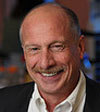 Norman Dovichi
Norman Dovichi
Dovichi developed the measurement tools that allowed the human genome project to be completed. He is currently developing tools to study the proteome, which is the protein content of an organism, tissue or cell. He was cited for “distinguished contributions to analytical chemistry, particularly for pioneering applications of capillary electrophoresis to DNA sequencing, molecular separations at the yoctomole level and chemical cytometry.”
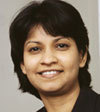 Crislyn D’Souza-Schorey
Crislyn D’Souza-Schorey
A major focus of D’Souza-Schorey’s research is to define how altered regulation of signaling pathways that govern cells can contribute to cancer initiation and progression. She was cited for “distinguished contributions to the field of cancer cell biology, particularly for studies on membrane traffic and ARF proteins in cell motility and tumor invasion.”
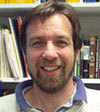 Jeffrey Feder
Jeffrey Feder
Feder’s research is focused on understanding speciation, the process whereby one evolutionarily distinct gene pool is divided into two. He was cited for “distinguished contributions to evolutionary biology in advancing our understanding of ecological adaptation and speciation, and in particular to speciation occurring with gene flow.”
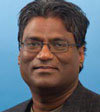 Harindra Joseph Shermal Fernando
Harindra Joseph Shermal Fernando
Fernando is an expert in fluid mechanics, specifically in atmospheric and oceanic flows as well as industrial flows involving density variations. He was cited for “excellent research on experimental and theoretical fluid dynamics with insightful applications to real-world problems such as tsunamis, urban flows and mountain winds.”
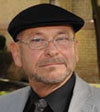 Stefan Frauendorf
Stefan Frauendorf
Frauendorf’s research interests involve the theoretical study of the newfound phenomena that challenge the traditional understanding of the atomic nucleus. He was cited for “seminal contributions to understanding the collective motion of heavy atomic nuclei, in particular when axial symmetry is broken.”
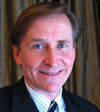 Peter Garnavich
Peter Garnavich
Garnavich’s research interests cover a wide range of topics in observational astrophysics. A primary focus has been the study of supernovae and their diversity. He was cited for “pioneering work on the discovery of dark energy and the cosmic equation of state, along with important observational discoveries regarding gamma ray bursts and the physics of supernova light curves.”
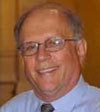 Randal Ruchti
Randal Ruchti
The objective of Ruchti’s research program is the study of the fundamental questions at the high energy frontier (TeV Scale) with particular emphasis on experiments performed at hadron colliders. He was cited for “pioneering work in the development of scintillating fiber detectors in high energy physics, and for major contributions to particle physics education and outreach.”
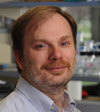 Jeffrey Schorey
Jeffrey Schorey
Schorey’s research focuses on the interaction between mycobacteria, which have a long history as pathogenic organisms and are the etiological agents of such diseases as tuberculosis and leprosy, and its host cell, the macrophage. He was cited for “notable contributions to the field of mycobacterial pathogenesis, particularly to our understanding of the dynamic interaction between mycobacteria and its host cell, the macrophage.”
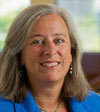
Stack’s current research centers on the proteinase families in two model systems: epithelial ovarian carcinoma and squamous cell carcinoma of the oral cavity. She was cited for “distinguished contributions to the field of proteinase regulation, including mechanisms of post-translational regulation of pericellular proteolysis via cell-cell and cell-matrix adhesion.”
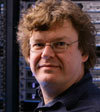 Olaf Wiest
Olaf Wiest
Wiest’s research interests include computational and physical organic chemistry, computational drug design, biophysical chemistry, enzyme mechanisms, transition metal catalyzed reactions and design of ligands for enantioselective catalysis. He was cited for “contributions to interdisciplinary studies in computational chemistry, inorganic chemistry and drug design.”
The tradition of AAAS fellows began in 1874, and this year the association is honoring 702 individuals as fellows. Currently, members can be considered for the rank of fellow if nominated by the steering group of the association’s 24 sections, by three fellows, or by the association’s chief executive officer. Each steering group then reviews the nominations of individuals within its respective section and forwards a final list to the AAAS Council.
The AAAS Council votes on the final aggregate list. The Council is the policymaking body of the association, chaired by the president, and consisting of the members of the board of directors, the retiring section chairs, delegates from each electorate and each regional division, and two delegates from the National Academies of Science.
The 10 new Notre Dame fellows will be presented with an official certificate and gold and blue (representing science and engineering, respectively) rosette pins Feb. 16 during the 2013 AAAS annual meeting in Boston.